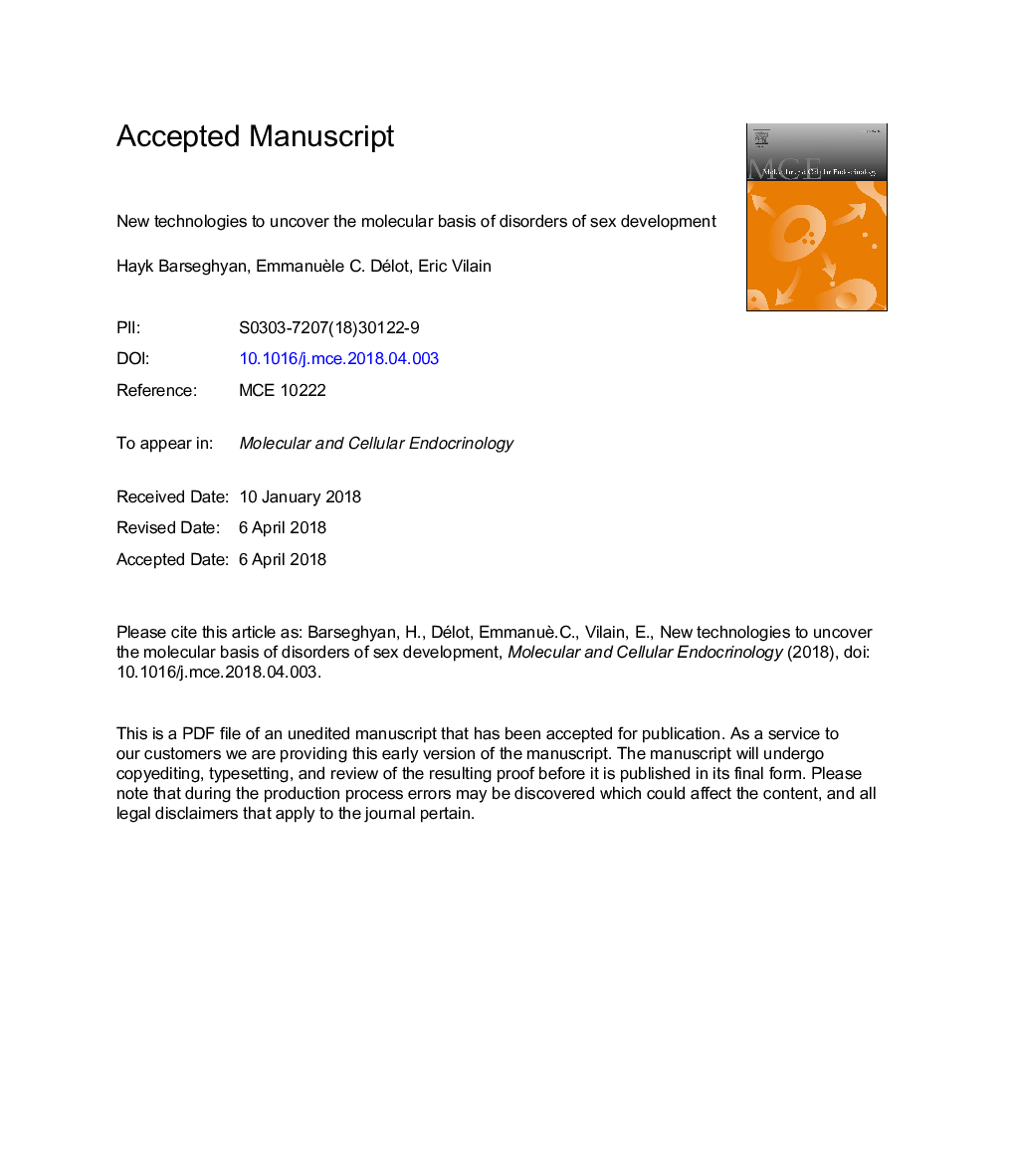| Article ID | Journal | Published Year | Pages | File Type |
|---|---|---|---|---|
| 8476450 | Molecular and Cellular Endocrinology | 2018 | 39 Pages |
Abstract
The advent in the clinical realm of next-generation sequencing methods, with constantly decreasing price and turnaround time, has revolutionized the diagnostic process. Here we review the successes and limitations of the genetic methods currently available for DSD diagnosis, including Sanger sequencing, karyotyping, exome sequencing and chromosomal microarrays. While exome sequencing provides higher diagnostic rates, many patients still remain undiagnosed. Newer approaches, such as whole-genome sequencing and whole-genome mapping, along with gene expression studies, have the potential to identify novel DSD-causing genes and significantly increase total diagnostic yield, hopefully shortening the patient's journey to an accurate diagnosis and enhancing health-related quality-of-life outcomes for patients and families.
Related Topics
Life Sciences
Biochemistry, Genetics and Molecular Biology
Cell Biology
Authors
Hayk Barseghyan, Emmanuèle C. Délot, Eric Vilain,
